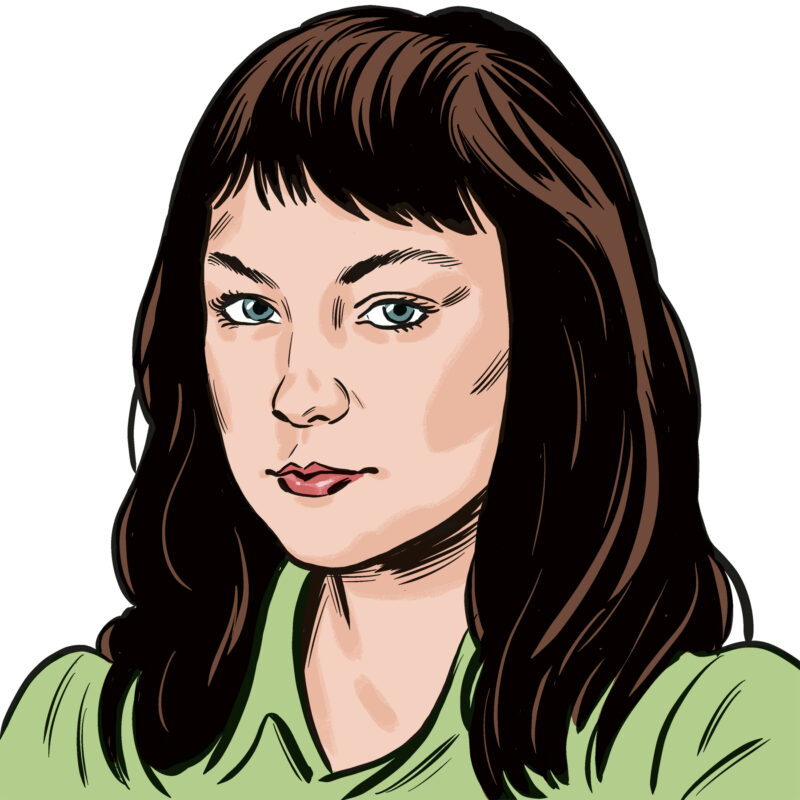Born and raised in St. Louis by older adoptive parents, Angel Olsen wants something real—no-nonsense experience full of life’s highs and lows rather than polite niceties; she doesn’t mind if it’s messy or hard, especially if it’s life-altering. During Olsen’s 2017 Pitchfork Music Festival performance, her band vamped while she slowly strutted her way across the stage in big sunglasses, before strapping on her black Gibson and playing a smoldering version of an early song, “High & Wild.” This is a woman who once sang backup for Bonnie “Prince” Billy and plotted her revenge on the exploitative, male-dominated music industry from the back line. She tossed her sunglasses aside with effortless cool to reveal accusatory eyes. When the song ended in a fiery rave-up, she said, “Sometimes you’re out there and you just got to get a couple things off your chest. And it’s hard out there being real with people, every day. Being real with them. It’s hard to be real with everybody in your life.” Then she laughed, and you saw that her anger, leavened by a wry sense of humor, was part of the tenacious resilience that has enabled her to step into the spotlight and command her own band.
Fast-forward to 2021: there’s a global pandemic, and Olsen’s come out to her parents as queer, only to have her father die within a week of her revelation, with her mother following soon after. As I was writing this interview, a friend asked me, after listening to Olsen’s new album, Big Time, “Did she go through a breakup?” I laughed—an understatement. The record is an expansive processing of Olsen’s grief that reckons with heartbreak while basking in the sunshine of new love. After playing a new song, “Ghost On,” in a June 4, 2022, performance at Will Geer’s Theatricum Botanicum in Topanga Canyon, California, Olsen sighed and said, “It’s fine. Everything’s fine. It’s all real. It’s all real. It’s all very, very real,” and you got a sense that all the turmoil captured on the record was ongoing, and while she would acknowledge the turmoil, she was moving forward because she had a show to play.
You have reached your article limit
Sign up for a digital subscription and continue reading all new issues, plus our entire archives, for just $1.50/month.
Already a subscriber? Sign in





